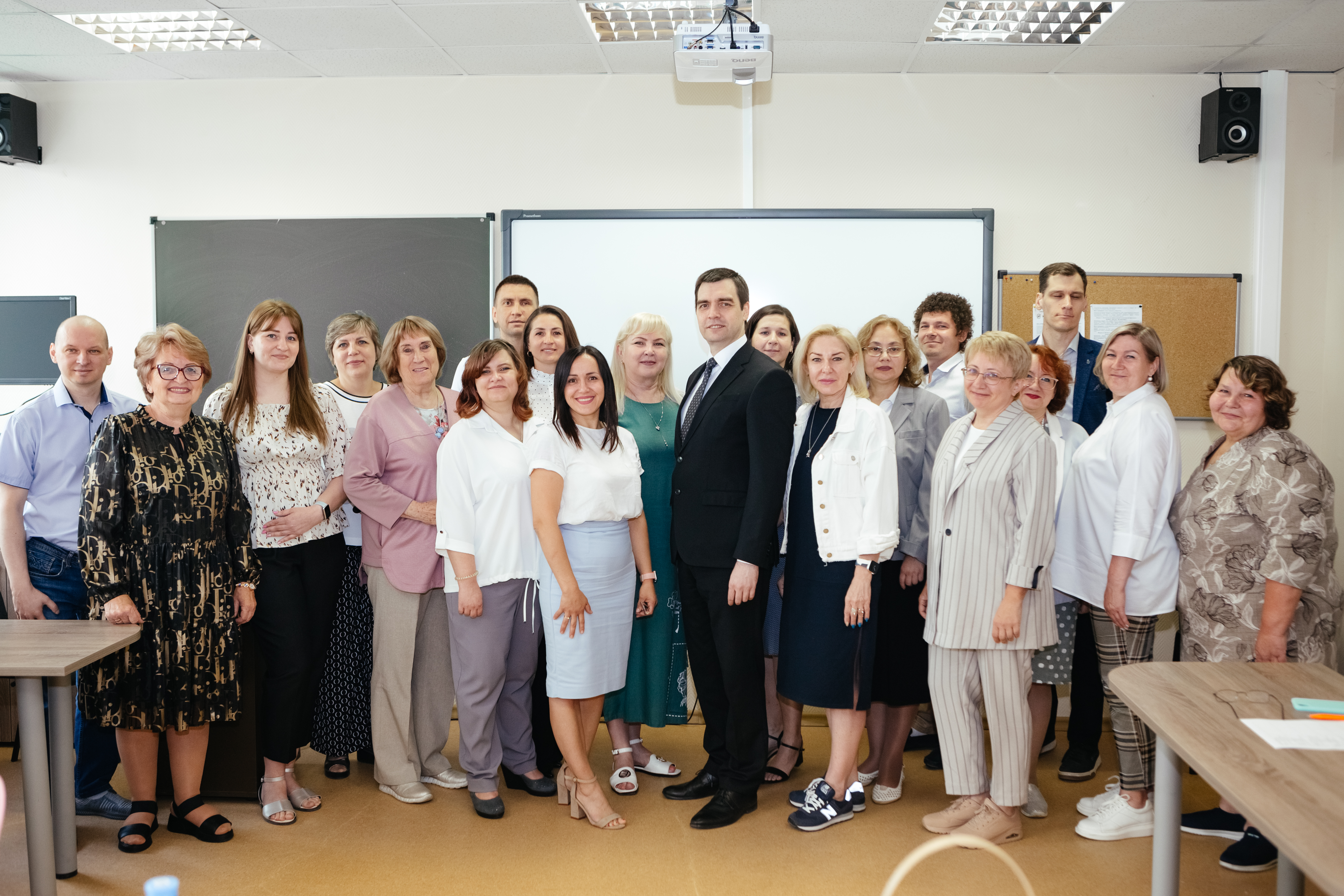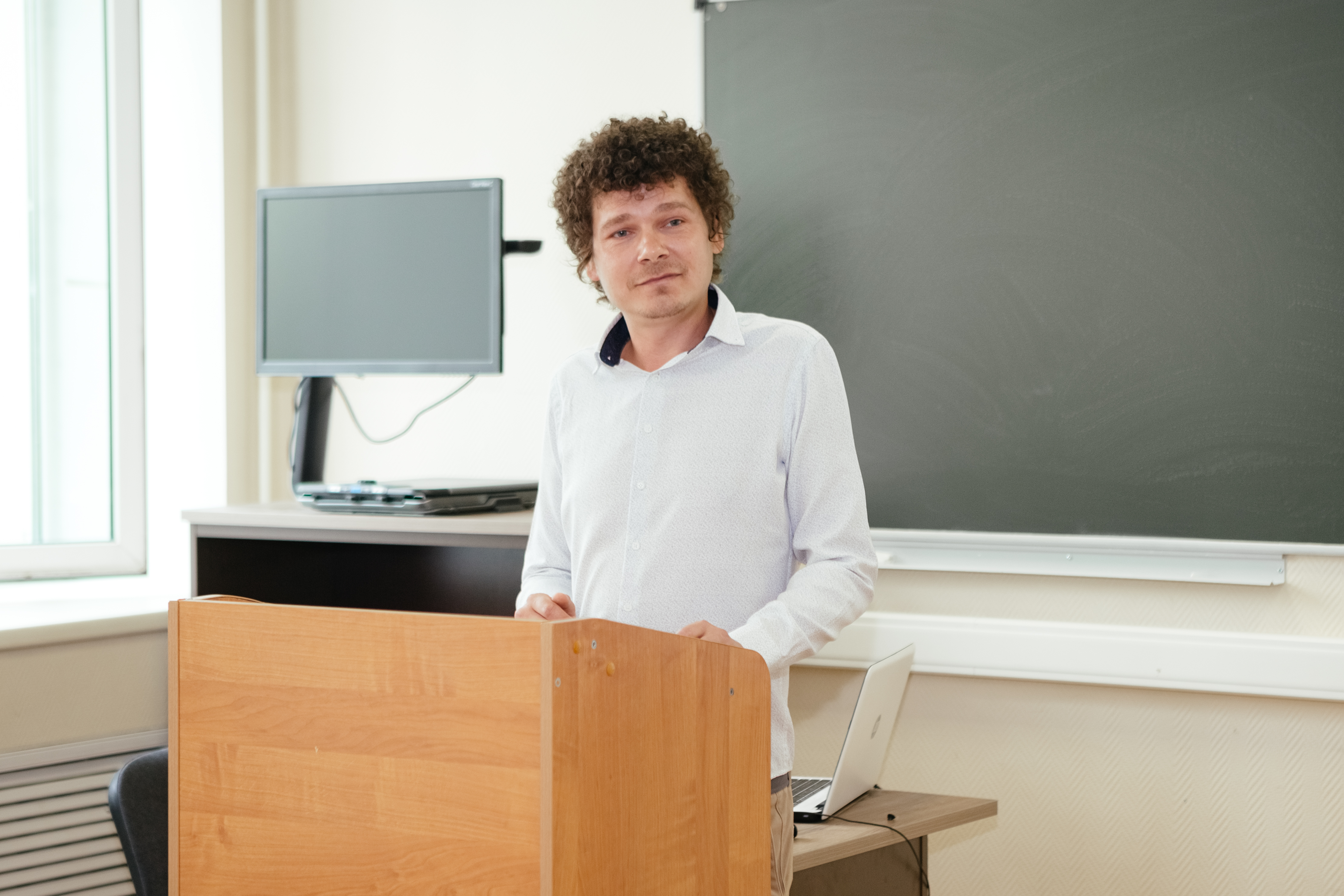Demand with employers
The graduates completed a five-year course of study – from 2018 to 2023 – under a grant from the Ministry of Education and Science of the Samara Region and with the support of the program by Governor Dmitry Azarov.
“We enroll such a grant group once every five years,” said Andrey Rylov, Head of the Centre for Inclusive Education at Samara University. “This year we are again participating in the specialized competition of the Ministry of Education of the Samara region. We plan to enroll a group of 20 and for the next five years to train students in the educational program “Psycho-pedagogical education. Psychology and Pedagogics of Inclusive Education.” To enroll in this program, an applicant must have a confirmed disability. In addition, you have to pass an entrance test.”
This program of study is the ticket to life for students with disabilities. Thanks to the acquired knowledge, skills and abilities, graduates can work in organizations of preschool, school, secondary vocational and higher education as pedagogical psychologists and tutors. Since the form of education is part-time, many enrollees start working while still studying and upgrade their qualifications to diploma holders in the process.
The list of employers ready to open their doors to students and graduates of Samara University is extensive: in Samara, they are boarding school No. 4, boarding school No. 117 named after T.S. Zykova, boarding school No. 17, a number of institutions in Novokuibyshevsk – boarding school named after I.E. Yegorov, structural subdivision Kindergarten “Centre for Correction and Development of Children” of School of General Education No. 18. There are also public organizations among them: Samara municipal public organization of wheelchair users “Association Desnitsa,” interregional youth public organization “Inclusive Resource Centre,” and others.
In addition, the University is continually working to negotiate new contracts with potential employers throughout the region.
Accessible environment
The learning process is organized in such a way that persons with special educational needs do not experience discomfort: architectural accessibility is organized, special methodological materials and technical means of learning are used.
“All buildings where students with disabilities study have ramps, special floor coverings and mnemonic diagrams to guide the visually impaired and blind,” continues Andrey Rylov. “There are special teaching aids: screen magnifiers, a radio class for the hearing impaired, which allows amplifying the sound, interactive whiteboards, projectors which help the deaf see what the teacher is talking about. There are also interpreters into sign language who translate lectures for the hearing impaired, helpful electronic and information technologies, and online courses.”
For visually impaired students, the training is accompanied by audio lectures and audio practical sessions, and during the pandemic, remote lectures in Zoom were organized. Moreover, the students could use a Braille computer with a display and printer, a reading machine typhloset, a television magnifying device, a video magnifier for remote viewing, digital typhlomagnetophones and voice recorders, as well as special software: JAWS speech navigation program, speech synthesizers, and screen magnifiers.
Today, the total number of students with disabilities at Samara University is 131. Each of them can use adaptive information facilities: computer class, interactive whiteboard, acoustic amplifier and speakers, multimedia projector, TV, VCR, videoconferencing device, workstation with a special enlarged keyboard and roller.
Defense – no allowance for health
Larisa Rodina, an Associate professor of the Department of Human Resource Management who works with a group of hearing impaired, deaf, and blind people, is one of the panel members at the defense. No allowances are made for students’ health status, she says.
“All papers go through an anti-plagiarism system. For an excellent grade, students should have a score of at least 70, for a good grade – at least 60, and for a satisfactory grade – at least 50. The requirements are the same for all,” she emphasized.
Speaking about the criteria that are taken into account when evaluating graduation theses, Larisa Rodina also said that standard requirements include knowledge, skills, anti-plagiarism system indicator, and observance of the established methodological format.
“We prioritize students’ current place of employment, and build their practice in a way that is compatible with the workplace,” she explained. “The first chapter of the thesis is the research problem and the second chapter is the subject of the research. Problems are analyzed in detail.”
Students choose the topic of the thesis based on their own interests. So, the topic of research of one of the hearing impaired students, Guzel Shaimardanova, is “Social and pedagogical activities to organize communication between elderly people with hearing impairments.”
“I work at a factory as an ironer, but I often visit the Recreation Centre, always watch the elderly and get involved in their activities. I am interested in working with them, so the subject of my thesis is related to this category of people,” Guzel shared. “I am grateful to the University for providing all conditions for studying, including the assistance of a sign language interpreter and adapted programs. It all makes the process a lot easier.”
The theme of the work of visually impaired student Aleksandr Ponomarev is “Formation of cohesion of adolescents in a sports inclusive team.”
“This topic is close to me as I have been involved in various sports (sports tourism, goal-ball, powerlifting) for many years, was a repeated champion of Russia, a member of the Russian national team,” he explains. “The study was conducted on the basis of the All-Russian Society for the Blind, and involved children practicing table tennis, sports tourism, and goal-ball. After the practical activities, I found that the psychological climate has improved and team cohesion has increased.”
Aleksandr evaluates the training process as accessible: “The University is conveniently located, there is public transport, an accessible environment, ramps. And the people here are responsive, they help you if you get lost in the corridors,” he says. “The lectures are well-organized. We record them on an audio device, or they are emailed to us as an audio file. Special mail and messengers are available. You can come to the University and read a paper text with a special reading machine.”
Comments:
Mikhail Leonov, Vice-Rector for Educational Work and Youth Policy at Samara University:
“We look forward to working together with the Samara Region Government to promote inclusive education at Samara University. The problems raised in the works of our graduates will be topical and will become a guideline for our authorities in creating comfortable living and working conditions for people with disabilities.”
Natalia Solovova, Head of the Department of Human Resource Management at Samara University:
“Psychological and Pedagogical Education. Psychology and Pedagogics of Inclusive Education” program is an example of a human-centered approach in the organization of the educational process. We have created a ‘space’ on the basis of the University where everyone is accepted, understood, and supported; where together with the student we will look for ways to develop through training.”
Based on the materials of IA Volga News
 RU
RU  EN
EN  CN
CN  ES
ES 






